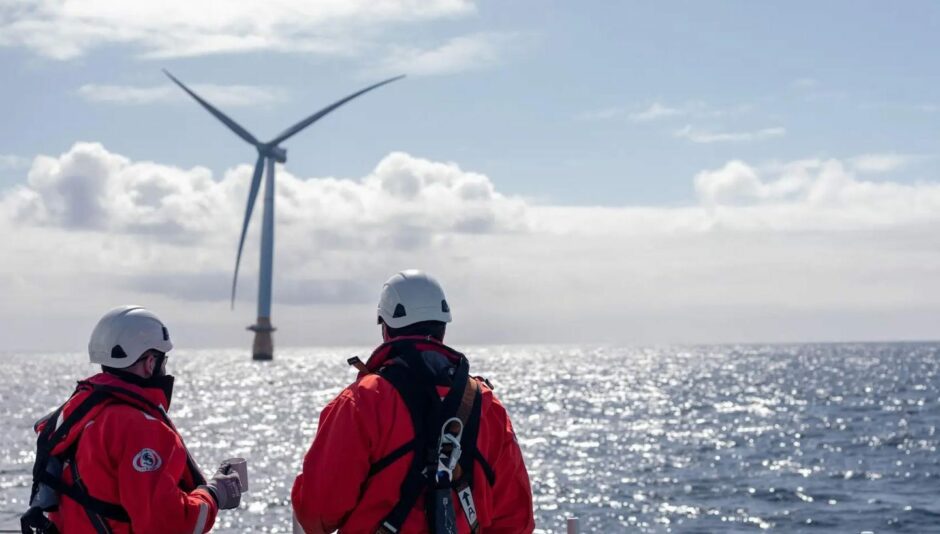
The UK’s Climate Change Committee published its report on the impacts of net zero on the workforce last week, but the energy sector is already acutely aware of the challenges the energy transition poses to its future prosperity.
The industry has been battling a skills shortage for decades with concerns about the long-term security of positions in the sector proving to be a major hurdle in attracting and retaining younger workers.
Now, the emergence of a more integrated energy sector – where businesses are evolving their portfolio to include hydrogen, wind, CCS – can support greater job security, building the case for investment in people and skills.
Collaboration will be key to bringing in the influx of new workers required to bring the North Sea’s promising pipeline of major infrastructure projects online and deliver greater energy security for the UK.
The recent appointment of Grant Shapps to head up the newly-created Department for Energy Security and Net Zero, suggests the development of indigenous energy supplies will continue to be a priority. Add to that the announcement from the NSTA of it having awarded 20 new CCS licenses to North Sea operators and it’s clear there are reasons to be optimistic.
There are challenges, too, of course, and the ongoing debate around the impact of the windfall tax cannot be ignored. Despite that, the need to develop the workforce and attract new people to our industry remains.
It’s difficult to ignore the cyclical nature of the oil and gas industry with the aging of the workforce meaning many workers who left the sector following the Covid pandemic have never returned – leaving the sector facing considerable resourcing issues as activity now ramps up.
But successfully delivering an increasing number of projects will rely upon the industry growing its workforce, both by developing the skillsets of existing personnel and attracting new workers.
We’ve seen first-hand through our engagement with industry over recent years how attitudes are changing – and there’s a real appetite to develop a cross industry workforce to support the development of projects across all sectors.
To make that happen, though, we need to come together to identify key areas for development and put in place training programs to address any potential gaps before they appear.
For decades companies like ours have provided resource to support new projects and assist with the operations of existing infrastructure. Now, with significant commitments being made by industry in support of UK Government’s net zero ambitions, there’s an opportunity for us to give something back.
We’re doing that by working with clients across the industry, as well as partners such as AIS Survivex, to not only identify and match personnel for industry roles but to go beyond that to deliver targeted training for a complete recruitment solution, benefiting employers and individuals.
Working collaboratively, and at a more strategic rather than transactional level, allows us to support industry in tackling the skills shortage head on to ensure a steady stream of competent personnel are available when they are needed.
Together we can demonstrate the opportunities that exist within the sector for job seekers while also setting out a clear pathway to employment – unlocking the potential of the existing project pipeline and driving the energy transition in the process.
To achieve that, though, we need to invest not only in the people who will deliver the projects offshore, but in the people who can support their development, and to that end we’re growing our team to ensure we can ramp up our capacity to support the local workforce.
It is only by working in this way that we can develop the skilled workforce needed to maximise returns from existing operations, bring new fields online, repurpose depleted reservoirs for carbon sequestration and increase offshore wind capacity.
Together we can not only demonstrate the opportunities that exist within the sector for job seekers, but set out a clear pathway to employment – unlocking the potential of the existing project pipeline and ensuring the opportunities afforded to us by the inheritance of our existing North Sea infrastructure are realised.
If industry can act quickly to establish leading frameworks, such as the skills passport, which will remove the barriers associated with cross-sector working, we can create greater energy security for the UK while also delivering a workforce with exportable skills and experience, securing Aberdeen’s position as an international energy hub.
Recommended for you

 © Supplied by Advance Global Recru
© Supplied by Advance Global Recru